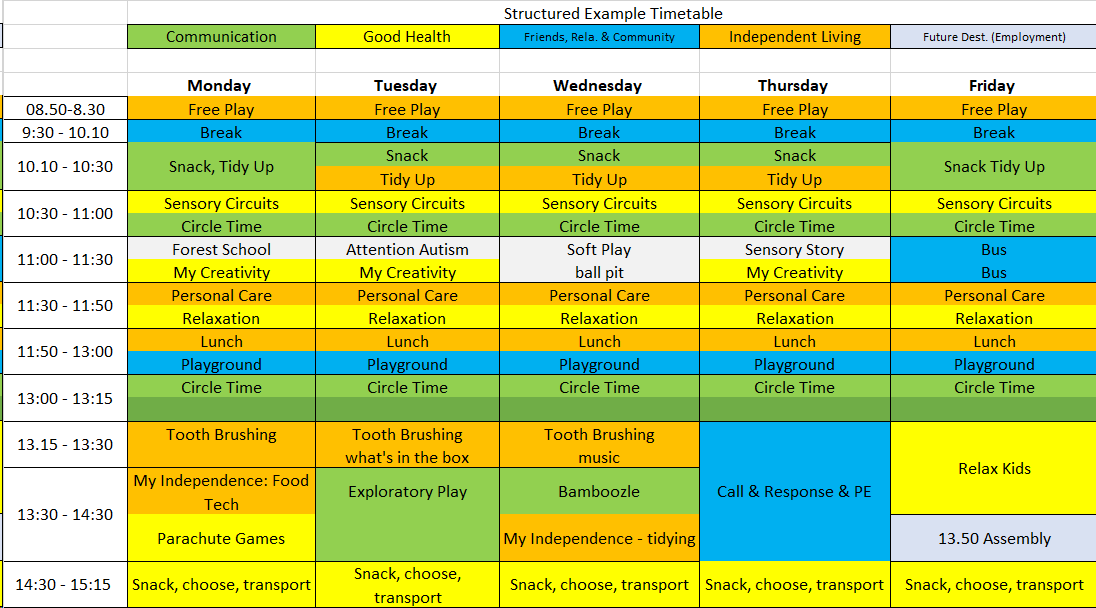Structured Provision
Students in the Structured provision are grouped by key stage. Post 16 students have opportunities to access activities such as ASDAN at specified times throughout the school week. We use a Total Communication approach that consists of;
- Signing
- Symbols
- PECS
- Communication boards/books
- Body language
- Thrive adapted Interoception Curriculum
All the students have access to a visual timetable and some students have personal schedules to help with processing, regulation and structure. The Structured Provision follows the Equals Informal Curriculums, alongside a bespoke ‘Wren Offer’.
Learners in the Structured Provision will have an autism diagnosis. They will present:
- Communication difficulties (most will use AAC)
- Difficulties in concentration and attention.
- Difficulties with both short-term and long-term memory.
- Slow information processing speed.
- Insecure general knowledge.
- Insecure play skills.
- Difficulties with social interaction.
- Difficulties with generalisation and problem-solving.
- Help with personal care.
- High levels of adult support or in task schedules to complete tasks.
- Access to a high level of structure, routines and a low arousal environment.
- Difficulties in processing the sensory information.
Generally, the learners are ambulant and highly mobile and have reasonably sound gross and fine motor skills.
The learning in the Structured department is designed to support students to develop the skills that will support them in later life. Students in the Structured department have an ASD diagnosis and the sessions are designed to support these needs through providing the right level of structure, communication aids and incorporating knowledge of the way that ASD students learn.
Students experience sessions and activities repeated over time. This is to support the working memory, which influenced the focus of attention on objects of tasks. Sequencing of actions and events are supported through the use of schedules or backwards and forwards chaining (aided by in-tasks schedules).
At the heart of the Structured curriculum is the teacher having the knowledge of each individual student. Sensory regulation, emotional regulation and transactional support are taking into considerations when planning.
Curriculum Philosophy:
The biggest indicator for a successful life is social capital – the links and support networks that an individual has around them which supports emotional health and wellbeing.
Our curriculum needs to be designed to develop these links:
- Support for the individual to develop the skills to make links (self-regulation and communication skills) – Me
- Develop positive relationships (communication skills and emotional regulation) – We
- Build personal skills that help to develop positive mutually beneficial relationships, not only at an individual level but between groups (Our) and to benefit others (Your).
We support students to become:
- Successful learners who make progress, enjoy learning and achieve their potential
- Confident adults who can live safe, healthy and happy lives
- Responsible adults who make a positive contribution to society
We do this by ensuring the curriculum:
- Is relevant to the specific needs of the student.
- Offers ways to fulfil their full potential through problem-solving.
- Is flexible to enable a highly personalised approach.
- Builds on existing knowledge, skills and understanding by building models of this world and making connections.
- Reflects the multicultural nature of the local and national community and builds on British Values.
- Encourages respect for others and the environment.
- Develops confidence, self-esteem, self-regulation and independence.
- Prepares students for the opportunities, responsibilities and experiences of adulthood.







